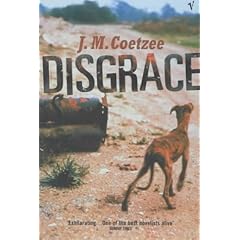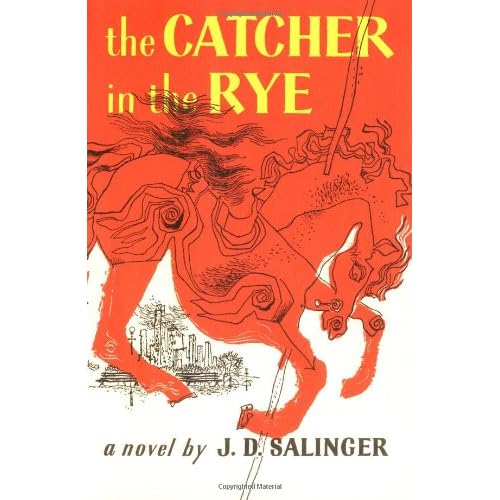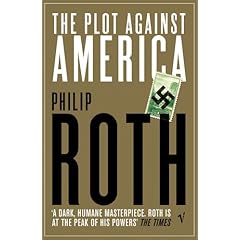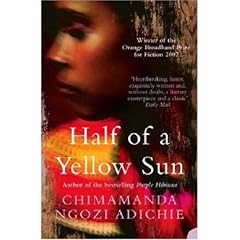880 pages. All consumed on the beaches of Ko Samui, greedily, and when the book ended, I was sad. After all, wasn't it Jane Austen who said, "If a book is well written, I always find it too short." So, I guess that makes Donna Tartt's Pulitzer winning novel "too short."
The book is titled after the famous Dutch painting by Carel Fabritius – which exists – and yet, the tale is fictional. If you're curious, the painting is displayed at Mauritshuis in The Hague, Netherlands. However, it takes a fictitious life of its own here – a journey so action-packed and unbelievable that it's almost plausible.
The opening line of the book draws you in, reminiscent of Daphne Du Maurier's Rebecca.
“While I was still in Amsterdam, I dreamed about my mother for the first time in years.”
An adult Theo Decker reflects on the series of unfortunate, coincidental events that have led him to the hotel room in Amsterdam. Early in his reminiscences, he concedes that "Things would have turned out better if she had lived," and then the raconteur tells us about how his mother died: a terrorist attack at the Metropolitan Museum of Art in New York when he was thirteen. The pair had entered the museum together to take shelter from the inclement weather, and had split up in the museum. Theo was captivated by a young girl who was visiting the museum with her grandfather, and decided to follow them while his mother wanted one final look at one of her favourite paintings which she hadn't managed to see up close.

When the explosives hit, the grandfather lay bleeding but encouraged Theo to take The Goldfinch and run. He also handed over his heavy gold ring to the teenager, who, in all his naiveté, took both home not considering the ramifications. As he drifted through his adolescence, the painting became his cross to bear – a cross he bore alone. After all, there was no one he could turn to – he did consider his options but disregarded each for different reasons.
After his mother's passing, he ended up living with one of his friends who had rich parents and lived in a rococo apartment in Park Lane. He found what can only be termed "the old curiosity shop" – the antique store run by the old man who gave him the ring and his business partner, Hobie. There, he discovered that the young girl that had captured his attention lay recovering and that her grandfather hadn't survived the attack. He befriended both, and gradually dealt with his grief, almost forgetting the painting that still lay at his old apartment.
However, when his father and the father's girlfriend finally make an appearance to whisk Theo to Las Vegas just as he's settled into life in New York without his mother, he grapples with the dilemma of the oil painting – which makes the trip with him, wrapped in newspapers. I just sensed an entire group or artists, curators, and art restorers cringe at the thought. His existence in Vegas veers towards surreal – even by Vegas standards. In school, he's an outsider and as outsiders are prone to do, he befriends the one other outsider: the worldly Boris.
It occurred to me that despite his faults, which were numerous and spectacular, the reason I’d liked Boris and felt happy around him from almost the moment I’d met him was that he was never afraid. You didn’t meet many people who moved freely through the world with such a vigorous contempt for it and at the same time such oddball and unthwartable faith in what, in childhood, he had liked to call “the Planet of Earth.”
As his father racks up gambling debts and the girlfriend indulges her junkie habits of snorting coke and popping pills, Theo is left to his own devices, which results in Boris and him drinking, experimenting with drugs, eating copious amounts of pizza, and talking about anything and everything – as drunken, neglected, philosophising teenagers who don't know better do.
Well - think about this. What if all your actions and choices, good or bad, made no difference to God? What if the pattern is pre-set? No no - hang on - this is a question worth struggling with. What if our badness and mistakes are the very thing that set our fate and bring us round to good? What if, for some of us, we can't get there any other way?
It is this friendship and the stolen painting that sets the tone of the rest of the narrative, and eventually leads Theo to Fabritius's country – all for the sake of the goldfinch; the painting almost being allegorical to Theo's situation: a bird that's chained and can't fly away, can't be free. And, one can hardly blame the bird. Likewise, one can hardly blame Theo.
That said, as an adult reading this book, I audibly protested as some events took place, urging Theo not to make the choices he did; there was no way some of those choices would end well. To be fair, Theo probably made a lot of those choices against his better judgement, but by that point, it's too late.
So what makes this novel remarkable? Theo, I think. Yes, he's flawed, but the candidness of the narrative makes him extremely likeable. Without making lame excuses, one can sympathise with his situation – how do you expect a child, orphaned for all practical purposes, do the right thing while he remains unsure as to the consequences? And, who's trying to figure out who he is.
A great sorrow, and one that I am only beginning to understand: we don't get to choose our own hearts. We can't make ourselves want what's good for us or what's good for other people. We don't get to choose the people we are.
Because--isn't it drilled into us constantly, from childhood on, an unquestioned platitude in the culture--? From William Blake to Lady Gaga, from Rousseau to Rumi to Tosca to Mister Rogers, it's a curiously uniform message, accepted from high to low: when in doubt, what to do? How do we know what's right for us? Every shrink, every career counselor, every Disney princess knows the answer: "Be yourself." "Follow your heart."
Only here's what I really, really want someone to explain to me. What if one happens to be possessed of a heart that can't be trusted--? What if the heart, for its own unfathomable reasons, leads one willfully and in a cloud of unspeakable radiance away from health, domesticity, civic responsibility and strong social connections and all the blandly-held common virtues and instead straight toward a beautiful flare of ruin, self-immolation, disaster?...If your deepest self is singing and coaxing you straight toward the bonfire, is it better to turn away? Stop your ears with wax? Ignore all the perverse glory your heart is screaming at you? Set yourself on the course that will lead you dutifully towards the norm, reasonable hours and regular medical check-ups, stable relationships and steady career advancement the New York Times and brunch on Sunday, all with the promise of being somehow a better person? Or...is it better to throw yourself head first and laughing into the holy rage calling your name?”
 I was born twice: first as a baby girl, on a remarkably smogless Detroit day in January of 1960; and then again as a teenage boy, in an emergency room near Petoskey, Michigan, in August of 1974.
So opens Eugenides' epic novel, Middlesex. Calliope "Cal" Stephanides was declared a girl when she came into this world, against the odds. Her grandmother's spoon (which had successfully predicted the sex of previous unborn children) had swung indicating a son would be born, but, Calliope's father begged to differ saying, "it's science" - well, maybe so, but, fourteen years later (despite being raised as a girl), the Stephanides family learnt that "Cal" had a 5-alpha reductase deficiency, which resulted in the doctor figuring a girl had been born, not a boy.
I was born twice: first as a baby girl, on a remarkably smogless Detroit day in January of 1960; and then again as a teenage boy, in an emergency room near Petoskey, Michigan, in August of 1974.
So opens Eugenides' epic novel, Middlesex. Calliope "Cal" Stephanides was declared a girl when she came into this world, against the odds. Her grandmother's spoon (which had successfully predicted the sex of previous unborn children) had swung indicating a son would be born, but, Calliope's father begged to differ saying, "it's science" - well, maybe so, but, fourteen years later (despite being raised as a girl), the Stephanides family learnt that "Cal" had a 5-alpha reductase deficiency, which resulted in the doctor figuring a girl had been born, not a boy. It's not often a book leaves me completely speechless. Wowed. Awestruck. Absolutely blown away. But then again, it's not often that I come across a book like Michael Cunningham's The Hours. Both,
It's not often a book leaves me completely speechless. Wowed. Awestruck. Absolutely blown away. But then again, it's not often that I come across a book like Michael Cunningham's The Hours. Both,  In January 2009, I was introduced to the wonderful world of David Mitchell by a friend, who lent me the surreal
In January 2009, I was introduced to the wonderful world of David Mitchell by a friend, who lent me the surreal  Amy Tan's debut novel, The Joy Luck Club, is the first book by her that I have read. It is also the first book I've read with strong Chinese references, so I wasn't quite sure as to what I should expect from this book.
The Joy Luck Club is the story of four Chinese women who have immigrated to the United States of America, under different circumstances, and all four are attempting to bring up their daughters in America - daughters who think like Americans, despite their mothers best efforts to instil in them their Chinese culture and heritage.
Amy Tan's debut novel, The Joy Luck Club, is the first book by her that I have read. It is also the first book I've read with strong Chinese references, so I wasn't quite sure as to what I should expect from this book.
The Joy Luck Club is the story of four Chinese women who have immigrated to the United States of America, under different circumstances, and all four are attempting to bring up their daughters in America - daughters who think like Americans, despite their mothers best efforts to instil in them their Chinese culture and heritage. This is the final post on the
This is the final post on the  So, I'm taking ages with the Weekly Geeks'
So, I'm taking ages with the Weekly Geeks' 
 Yes, I did enjoy the book, and I think it's definitely worth a read. It provides the reader with an insight into life in the South in those times: oppressed women, abusive men, judgmental society. The story is told through the eyes of Celie, a girl of 14 (when the book begins), who has suffered a fair bit; being raped by the man she calls 'father', being forced to marry a man significantly older than herself who is in love with a famous blues singer (Shug Avery), and being separated from her sister, Nettie. It's the exploration of these subjects that make the book a little difficult to read, as you can't help but feel your heart go out to poor Celie, who writes her story to 'God', as she has been told never to tell about her abuse to another person.
Yes, I did enjoy the book, and I think it's definitely worth a read. It provides the reader with an insight into life in the South in those times: oppressed women, abusive men, judgmental society. The story is told through the eyes of Celie, a girl of 14 (when the book begins), who has suffered a fair bit; being raped by the man she calls 'father', being forced to marry a man significantly older than herself who is in love with a famous blues singer (Shug Avery), and being separated from her sister, Nettie. It's the exploration of these subjects that make the book a little difficult to read, as you can't help but feel your heart go out to poor Celie, who writes her story to 'God', as she has been told never to tell about her abuse to another person. This review has been outstanding for about a month and a half, and for that I apologize. I read it back when I was working towards a big deadline, and I just didn't find time to review it back then. But here it is, now...
This review has been outstanding for about a month and a half, and for that I apologize. I read it back when I was working towards a big deadline, and I just didn't find time to review it back then. But here it is, now... War destroys all that is left of innocence. It pulls people together, and it drives them apart. People are left asking questions, as they pine for their loved ones, as they try and contemplate the horrors of war, and as they struggle to survive - just so that they can see a better day.
War destroys all that is left of innocence. It pulls people together, and it drives them apart. People are left asking questions, as they pine for their loved ones, as they try and contemplate the horrors of war, and as they struggle to survive - just so that they can see a better day.